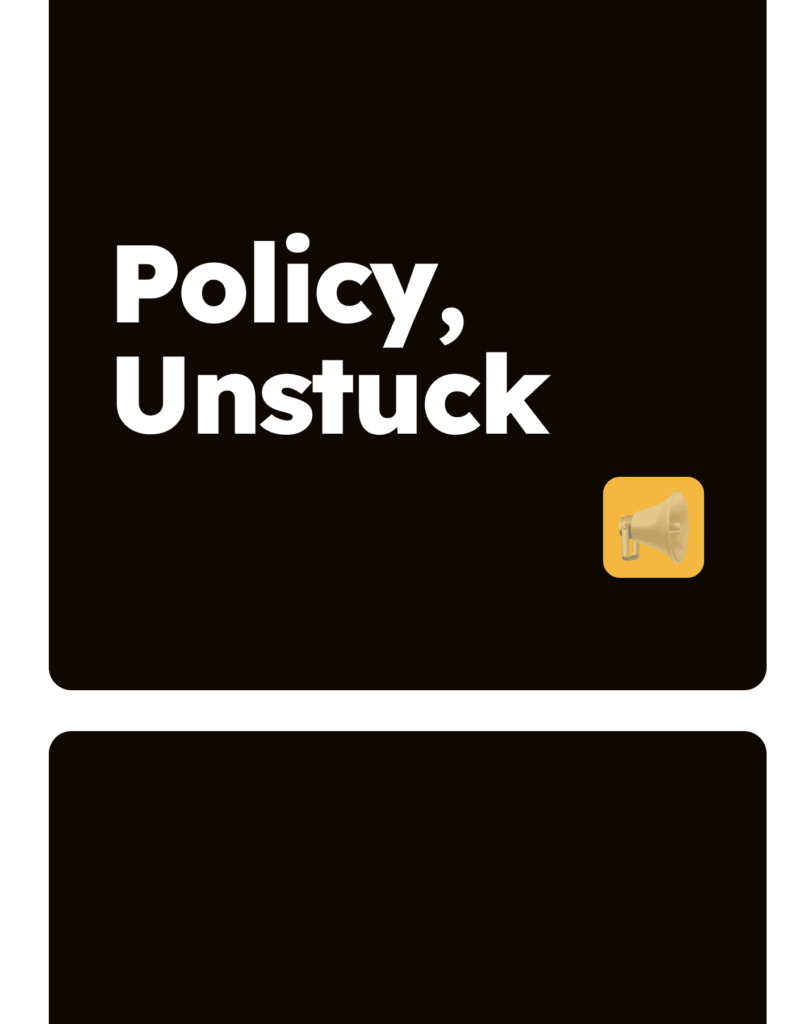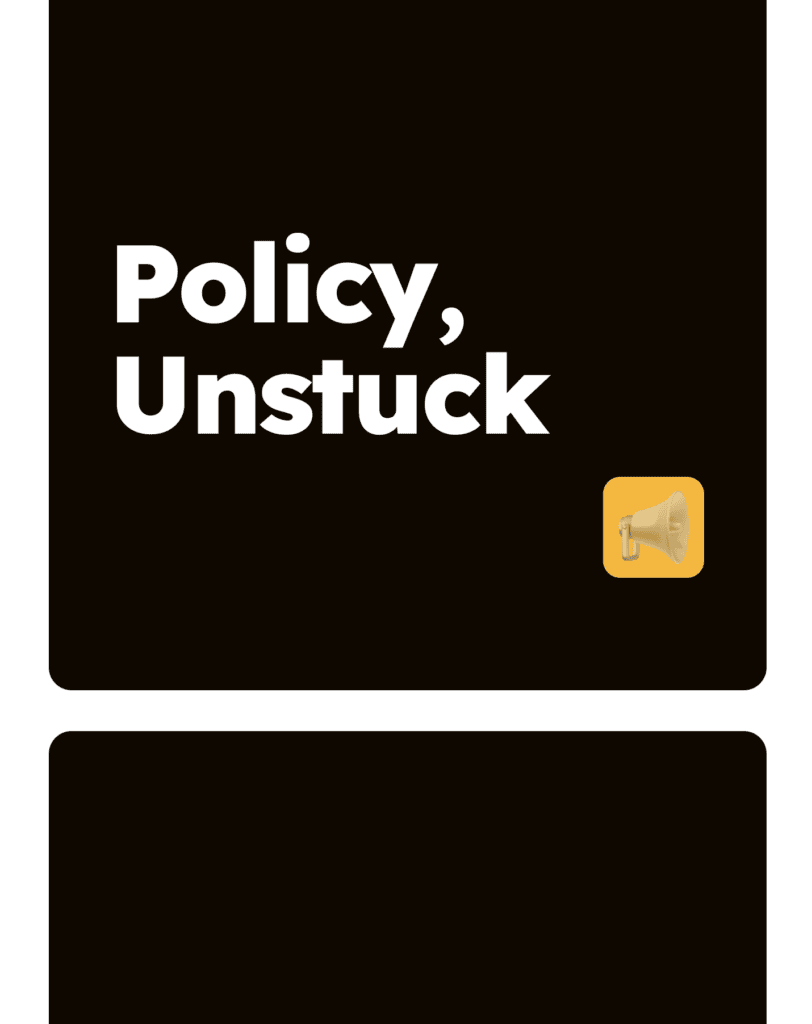#23: Elon Musk is right on the diagnosis, not the solution – Ed Leech
This interview with {ED LEECH} is part of the {POLICY UNSTUCK} series. Ed is a former special adviser to the Secretary of State for Transport.
Government is stuck in the analog age
The system hasn’t adapted to the modern age and the speed at which government needs to move. It’s still quite analog. It’s stuck in an era of physical letters, not one of social media and emails. This isn’t new of course – Tony Blair was talking about this back in the late 90s. It’s one of those perennial issues in government, where the changes needed are longer term intergenerational changes and the politicians and advisers are focussed on the next election. It’s not a nettle that anyone’s really grasped.
Why civil servants need permission to act
Civil servants need to be more empowered to make those day-to-day, smaller decisions rather than pushing everything up to ministers. Responsibility for changing this goes both ways: politicians have got to give up a little bit of power and give a bit more responsibility to the civil servants, and the civil servants have got to be a bit bolder and willing to take decisions and take accountability for them. To be fair to a lot of the civil servants, they would say it’s ripe for change and we haven’t adapted as well as we might have done.
The civil service’s most powerful weapon is inaction
The power that civil servants have is the power to not do stuff. There were a lot of things in government where civil servants wouldn’t actively block what you wanted to try and do, but they would come at it from a problems-first perspective. If there was something where civil servants agree with you, the submission would pop out a week later. If they didn’t agree with you, it would pop out three weeks later and you’d have to chase and have lots of back and forth with officials. We had to hone in on the priorities of the ministers and priorities of Number 10, which meant the lower priority issues that do need tackling just coast because advisers don’t have the time to keep pushing the relevant officials to make something happen.
Free up ministers to unlock policy progress
If we can move to a culture where civil servants feel empowered to make smaller day-to-day decisions and free up ministers and advisers’ time to focus on the big strategic issues, that would be a huge improvement and would allow more policy to get done. The challenge is often not that everything is complicated, but just the sheer volume. Ministers have so many submissions to work through, and they don’t want to miss anything or get anything wrong. They are also having to sign off all the written questions and correspondence and all that sort of stuff, and so it means the big issues don’t get the time or focus needed to make progress.
Why scrapping bureaucracy isn’t the answer
Civil service reform is incredibly difficult because the reason the system is the way it is is because of accountability and transparency. Government decisions affect millions of people’s lives and there has to be a clear audit trail about who has made the decision and why. The idea of some of the things coming out of America happening here – Elon Musk ripping everything up and getting rid of departments and just seeing how it goes… I’m not in that camp. It seems incredibly dangerous to me.
Build relationships with officials, not just ministers
When I worked in public affairs, I was too focused on the political side because ministerial meetings are the more glamorous ones and the ones you talk about more. But trying to get in and meet with officials on a regular basis is incredibly important. If you look at what happened recently when the Transport Secretary suddenly resigned, you could have invested loads of time in the relationship with her and her special advisers and suddenly they’re gone. Meanwhile you hadn’t made the investment in the relationship with the officials and those officials are still there advising the next set of ministers.
Inside the Treasury’s shadow operation
The Treasury effectively man-marks other departments – there are Treasury officials who just do railways, for example. Engaging them and understanding their thinking is very important, because they can often be the blockers. The rail industry was relatively positive about the Department for Transport, but a lot more negative about the Treasury, because the Treasury was seen as having too much control.
Why meaningless meetings damage your influence
Some organisations feel they have to meet with government because it’s a thing you’re supposed to do. Having a relationship with government is important, but you don’t need to be spending loads of time trying to badger people for meetings unless you’ve got a clear reason. It can be counterproductive, and you can actually end up annoying people by wasting their time, and then when you have got something interesting to contribute, you’re remembered as that person that bored them four months ago. Only get a meeting if you’ve got something useful to say.
Make every meeting count
Don’t be afraid to be quite transactional and quite clear with what you need from the government and what your offer back is. I found those meetings much more valuable than general chitchats. You came away thinking “great, that was a really good meeting.” When the next submission comes through, I might think about having a chat with them and checking we’re in the right ballpark. But when stakeholders are just meeting for the sake of it, that was really quite boring and I’ve got a load of paperwork back in the office to do.



